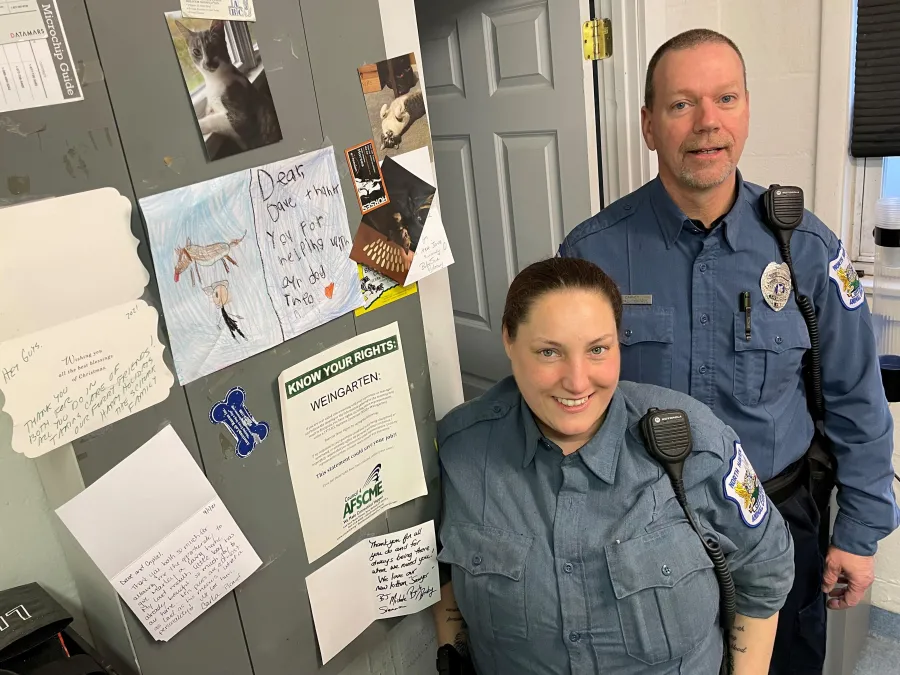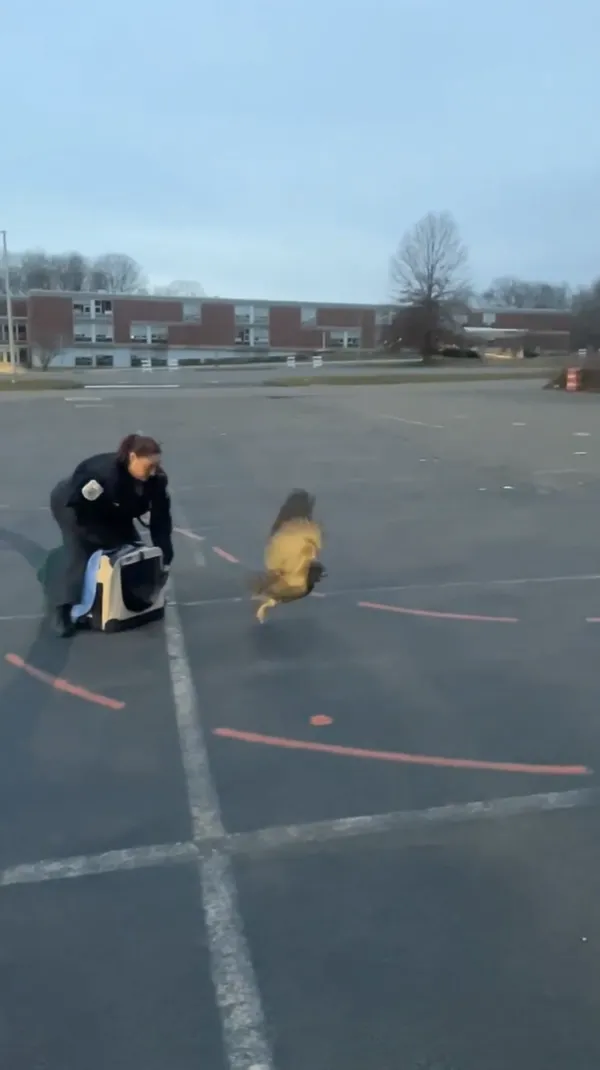Public Service Proud: Animal control officers rescue owl in North Haven

Being a municipal animal control officer goes beyond overseeing the dog pound. They handle all sorts of animals, including lost and injured wildlife.
Late last year, North Haven’s animal control team rescued a great horned owl that had become tangled in a backyard soccer net, and then got to release the rehabilitated bird back into the wild.
It’s just one example of the way AFSCME members are #PublicServiceProud — a new campaign from Council 4 to highlight the ways in which members go above and beyond on the job in our communities.
The story began in December of last year, when Animal Control Officer (ACO) David Carney and Assistant ACO Chrystal Rashba — members of Local 1303-265 — responded to the call and had to cut the trapped owl out of the net with scissors provided by the homeowners.
The owl was transported the owl to A Place Called Hope, a rehabilitation center for raptors located in Killingworth, and was returned to North Haven a couple of weeks later.
“They like to have them released in the area where they were found, because it's a territorial thing,” said Carney, who has been an ACO in North Haven for 29 years.
Rashba was the one to release the owl from its crate. Watch the video here.
Christine Cummings, A Place Called Hope director, said that she believes the owl was an adult female, and underweight due to hunting being more difficult in the winter.
The owl wasn’t seriously injured — just had sore spots from being trapped —responded to free meals and TLC and recovered quickly, she said.

Cummings said that she interacts with ACOs on a frequent basis, and that the North Haven ACOs “are quick to respond anytime I've ever needed them.”
“When they have a bird of prey, or a bird in our category, they are very, very generous with their time to drive the bird all the way out to our center from North Haven,” she said. “I think they're wonderful people. They care. They go above and beyond.”
Why they’re #PublicServiceProud
Part of an ACO’s job is to conduct public education on human interaction with wildlife.
Rashba recalled that after a tornado ripped through central Connecticut in May 2018, North Haven residents reported seeing black bears, which whichhad lived in Sleeping Giant State Park, in their yards.
There was one particularly persistent bear residents first spotted in the northern part of town, right by Sleeping Giant. Rashba said they wound up chasing it the entire summer.
“It was kind of getting people to understand that he's here, so bring your bird feeders in,” Carney said. “And then we show up and chase him out of the area. A day or two later, he’d pop up somewhere else.”
Springtime is when they get the most calls, Carney added, because people often spot animals that are normally nocturnal in the daytime.
“They’re having their young, so they have to feed their young more,” he said. “We play Daylight Savings Time, they don't … They're not going to change their habits.”
It’s the opposite in the wintertime, Rashba said, when the sun goes down sooner and animals are out during the daytime trying to absorb as much warmth as possible.
She added that they also do more public education on human interaction with wildlife due to the fast pace of development in North Haven that encroaches on the wild places.
“We're finding that we're pushing the wildlife out of where they would have been and into our neighborhoods,” she said. “So people are calling us saying, ‘I saw a bobcat, I saw a coyote,’ and we have to now educate them. This was their area first before it was yours.”
Rescue and rehabilitation. Adoption. Education. For Carney and Rashba, it’s all part of being an ACO and #PublicServiceProud in North Haven.
Be a #PublicServicePround member! Do you have a member story you want featured? Get in touch at [email protected]
